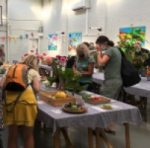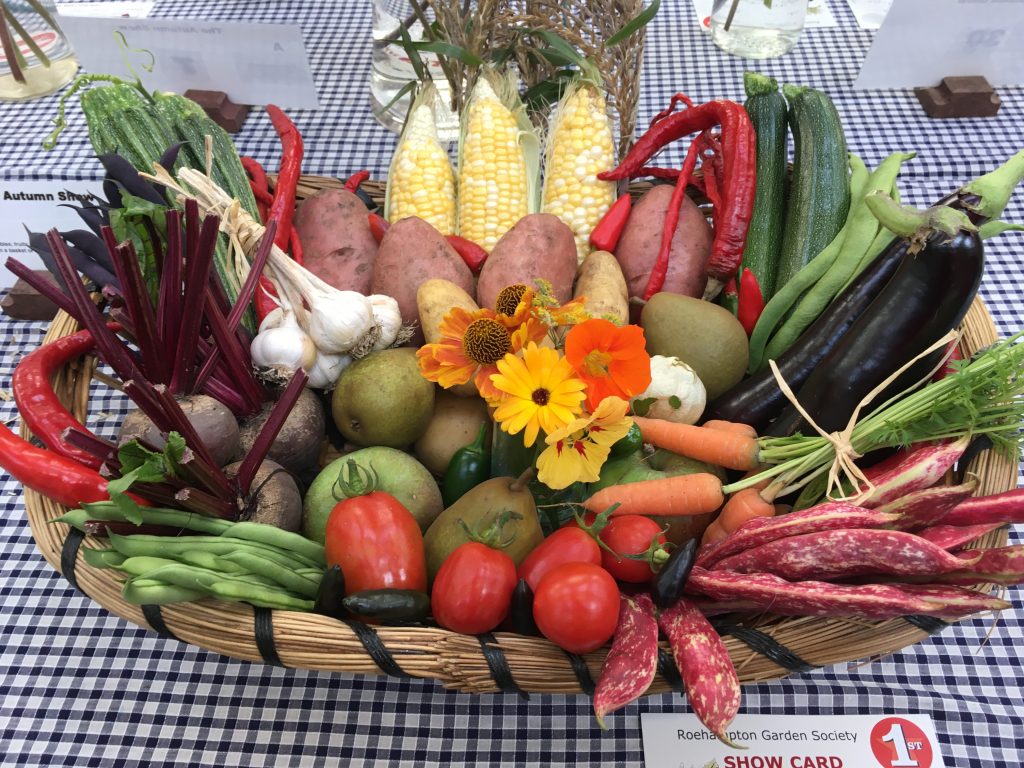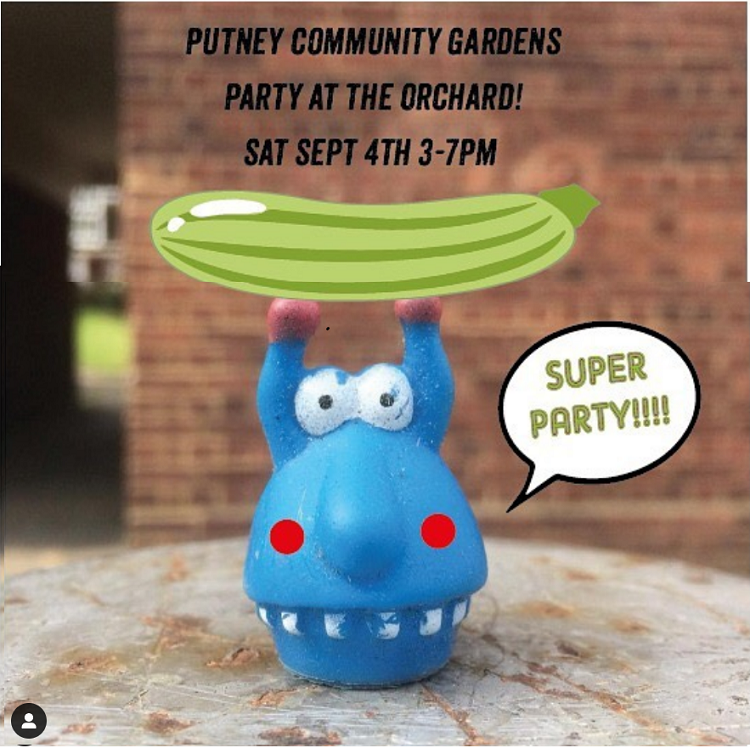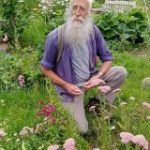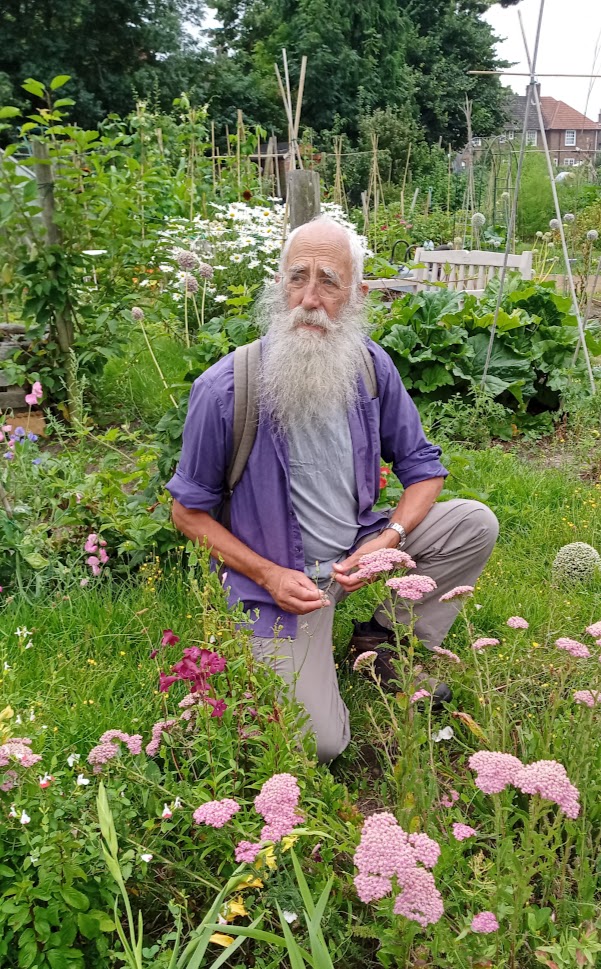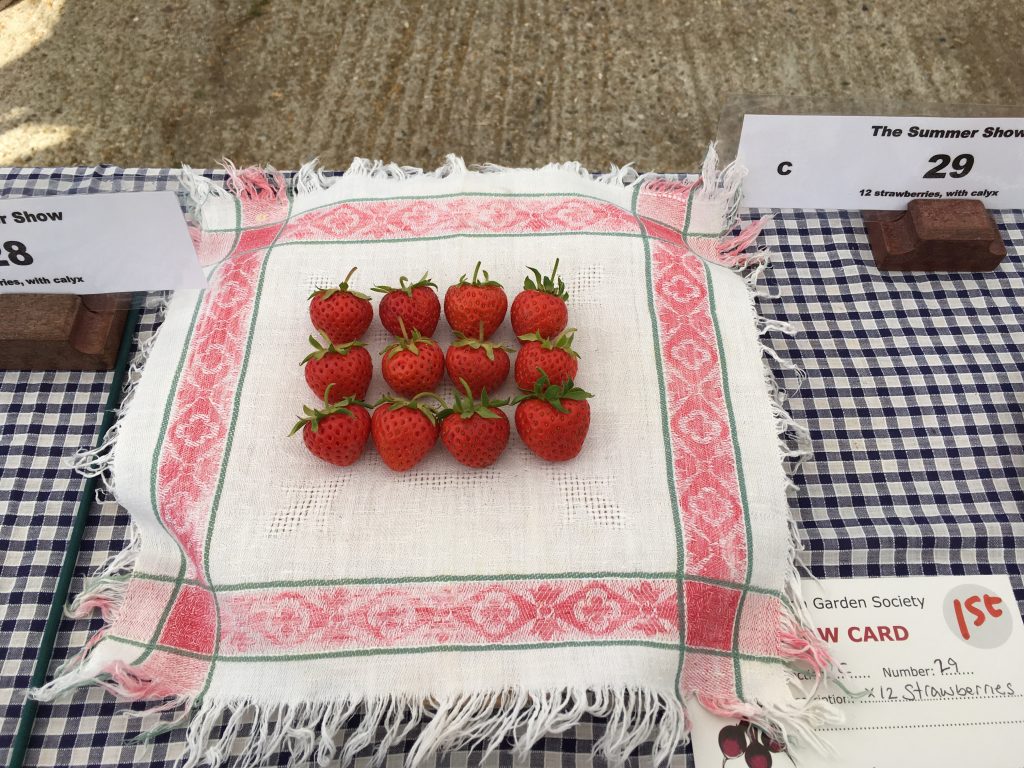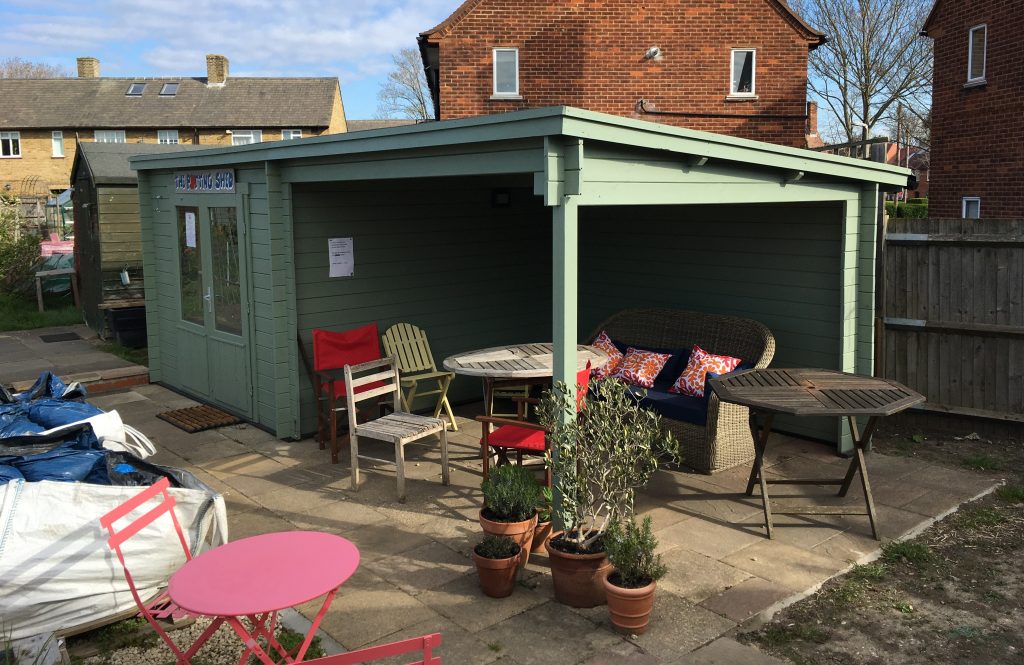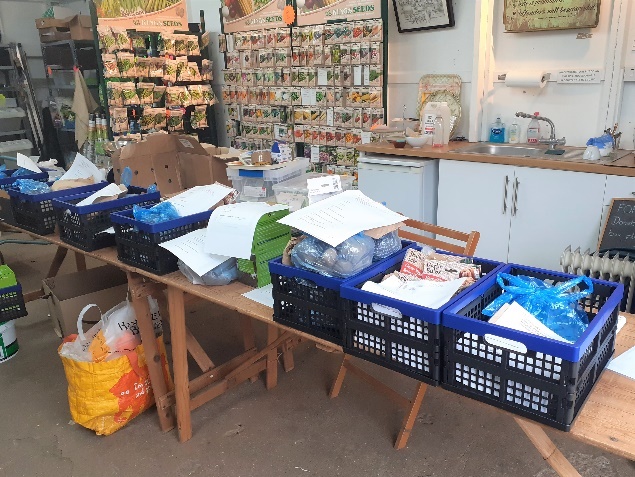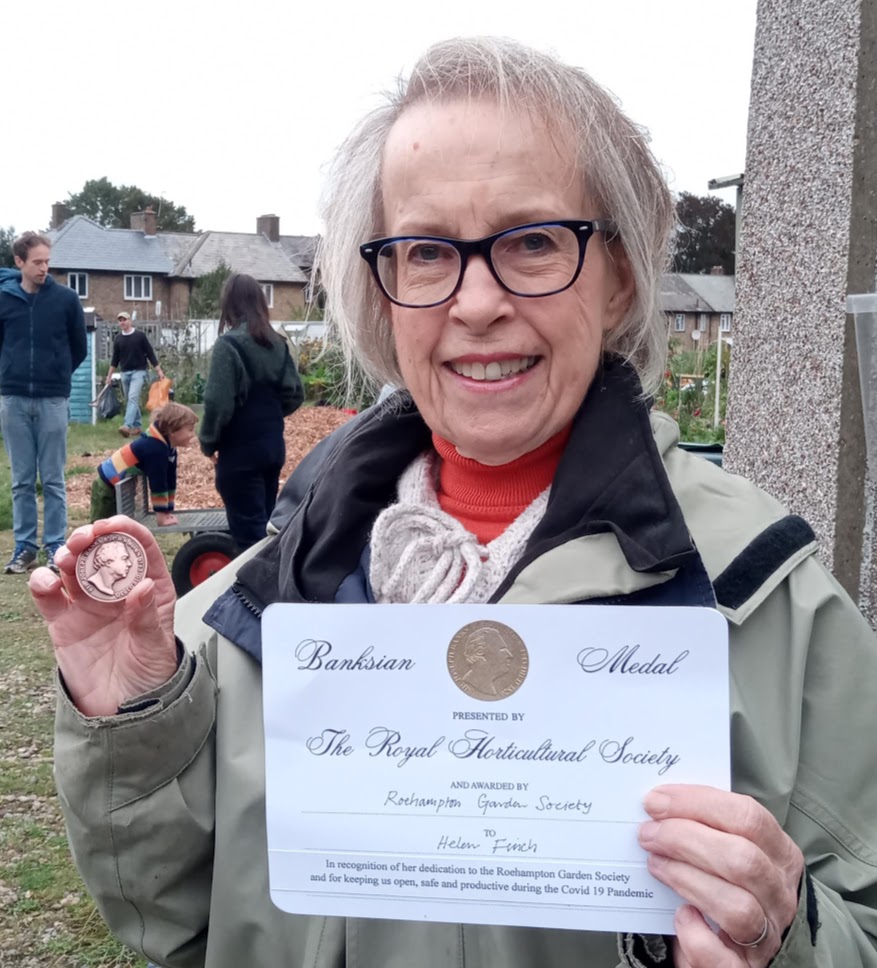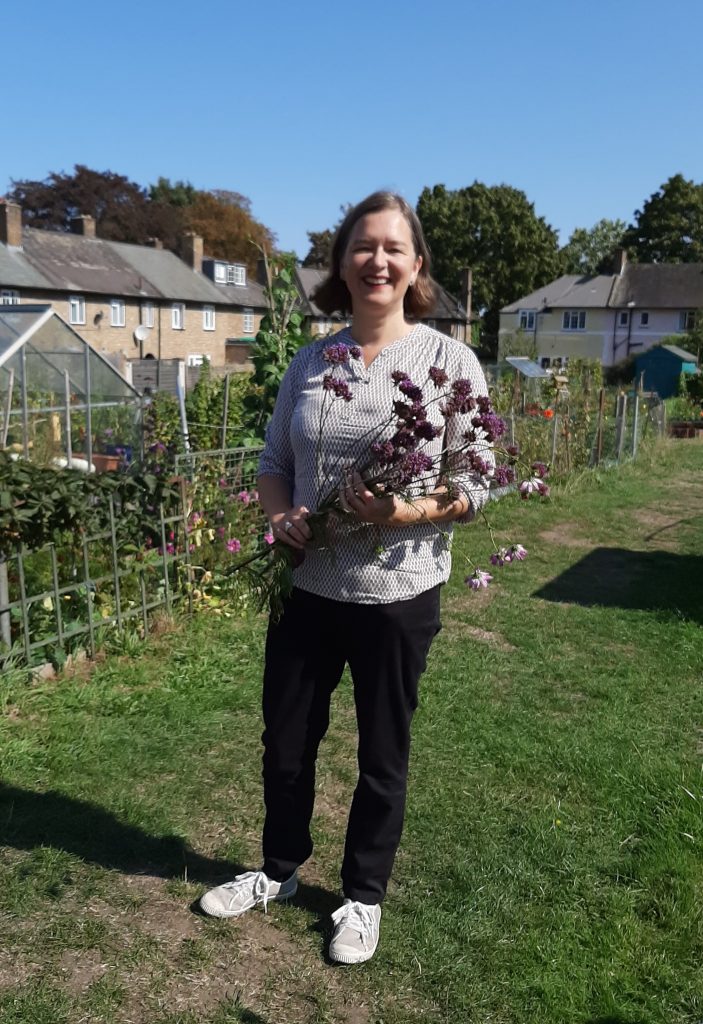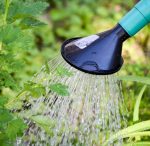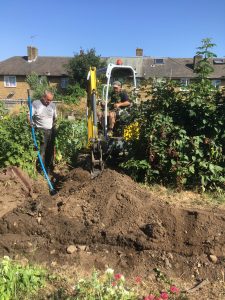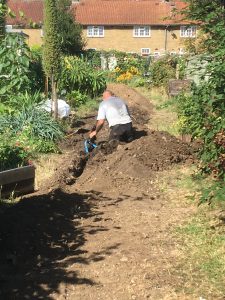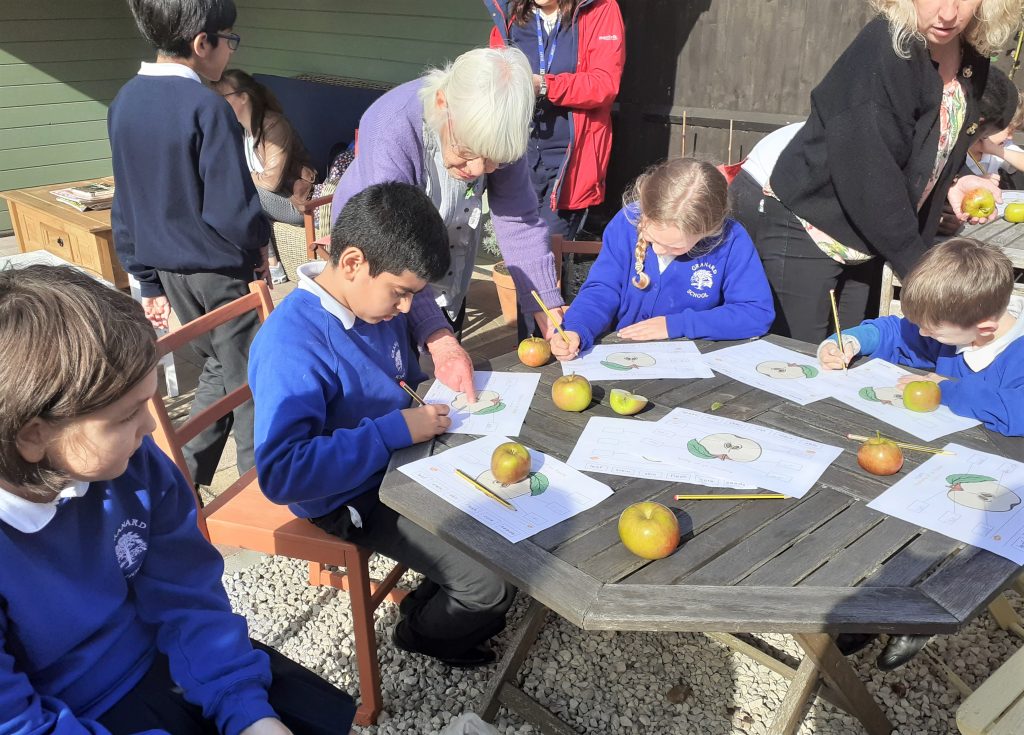
A small group from Granard Primary school came to the allotments on Monday 27th October as part of their on-going visits to our sites. On this occasion we talked about Autumn and each child picked an apple from plot holder Laura Davis’s tree. (You can see Laura helping in the photo.) Then, sitting in our new communal area, the teacher dissected an apple and the pupils were given a worksheet to name parts of an apple and they could then take the fruit home or eat it.
Every Monday afternoon (weather permitting) a small group of children and teachers from Granard school, visit our allotments. In the past many plot holders have been very friendly and shown and discussed with the pupils what they are doing on their plots. We have looked closely at fruit, vegetables and flowers as well as insects and birds. Whatever takes their fancy!
If you would like to meet the children they usually come at 2pm on a Monday and stay for about an hour.
submitted by Jackie Savage


